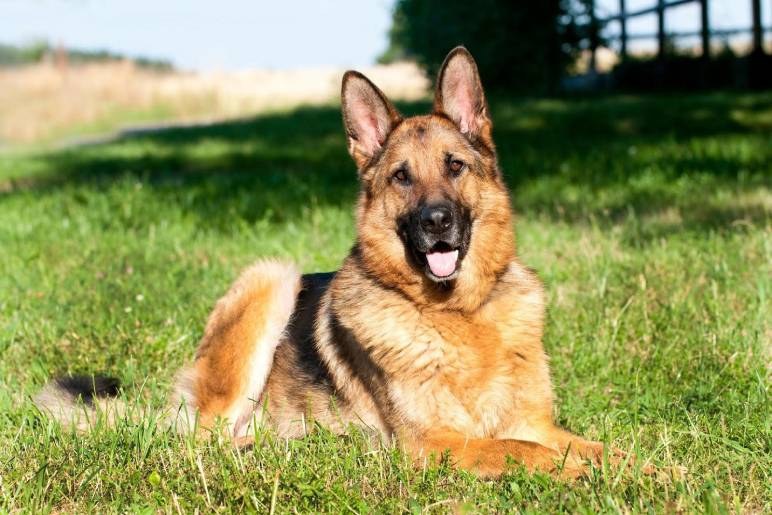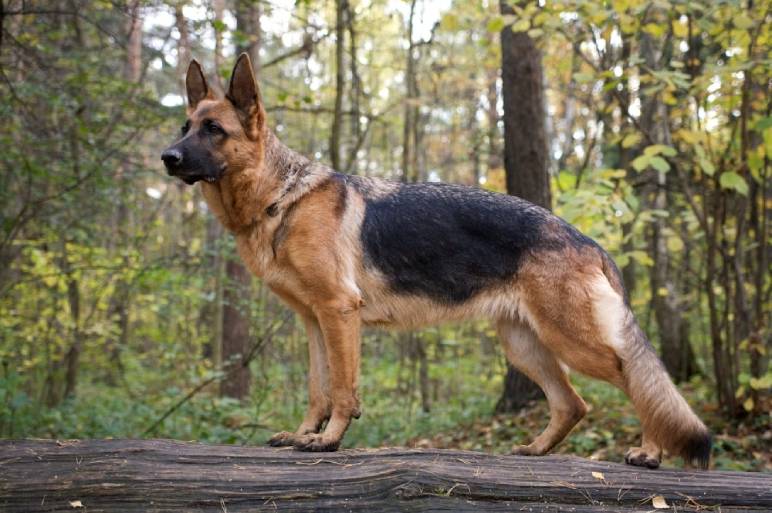German Shepherds are one of the most intelligent, loyal, and versatile dog breeds. Whether as family pets, working dogs, or service animals, their trainability makes them stand out. However, owning a German Shepherd also comes with the responsibility of ensuring proper training. In this guide, we’ll explore effective German Shepherd training techniques to help you nurture a well-mannered and happy companion.
Why Is Training a German Shepherd Essential?

Training a German Shepherd is not just about teaching commands; it’s about establishing trust, ensuring safety, and fostering a healthy bond. Here’s why training is crucial:
- Behavioral Control: Without guidance, German Shepherds can develop undesirable habits, such as excessive barking or chewing.
- Safety: Proper training prevents accidents and ensures they respond reliably to commands in potentially dangerous situations.
- Socialization: Training helps them interact positively with people, other dogs, and different environments.
- Mental Stimulation: German Shepherds are highly intelligent and need mental challenges to prevent boredom and destructive behavior.
Key Training Phases for German Shepherds

1. Early Socialization (8–16 Weeks)
The first step in training a German Shepherd begins with socialization during their puppy phase. Expose your puppy to a variety of sounds, people, and environments.
- Tips for Socialization:
- Arrange puppy playdates to introduce them to other dogs.
- Gradually expose them to household noises like vacuum cleaners and doorbells.
- Take them on short trips to parks or pet-friendly stores.
2. Basic Obedience Training
Start with simple commands such as sit, stay, come, and heel. Use positive reinforcement techniques like treats, toys, or praise to encourage desired behavior.
- Recommended Routine:
- Short sessions of 10–15 minutes twice a day.
- Always use consistent verbal cues and hand signals.
- Avoid punishment; instead, redirect their attention when they misbehave.
3. Crate Training
Crate training helps your German Shepherd feel secure and supports house training.
- Choose an appropriately sized crate—large enough for them to stand, turn, and lie down comfortably.
- Introduce the crate positively by placing their favorite toys or treats inside.
- Gradually increase the time they spend in the crate, ensuring they associate it with comfort and safety.
4. Leash Training
German Shepherds are naturally energetic, and leash training ensures they walk calmly by your side without pulling.
- Use a sturdy, non-retractable leash.
- Start in a distraction-free environment, rewarding them for walking beside you.
- If they pull, stop walking until they return to your side, reinforcing that pulling won’t get them what they want.
Advanced German Shepherd Training

1. Agility Training
German Shepherds excel in agility exercises, which enhance their physical and mental health. Set up an obstacle course with tunnels, hurdles, and weave poles to challenge their abilities.
2. Guard Dog Training
If you want your German Shepherd to serve as a guard dog, ensure they first master basic obedience. Enroll them in professional training to teach advanced skills like alert barking or intruder detection.
3. Scent Training
Tap into their keen sense of smell with scent training. This can be a fun activity at home or a pathway to specialized roles such as search-and-rescue.
Common Training Challenges and Solutions
1. Separation Anxiety
German Shepherds are known for their strong attachment to their owners, which can lead to separation anxiety.
- Gradually increase the time you’re apart.
- Provide engaging toys to keep them occupied.
- Avoid dramatic exits and reunions to reduce their stress.
2. Excessive Barking
While German Shepherds are naturally vocal, excessive barking can be a sign of boredom or anxiety.
- Identify and address the cause (e.g., boredom, fear).
- Train them to respond to a “quiet” command using treats and praise.
3. Chewing
Puppies, in particular, may chew to soothe teething pain, while adults might chew out of boredom.
- Provide plenty of chew toys.
- Use deterrent sprays on furniture or items they tend to chew.
- Redirect them to acceptable chewing outlets when caught in the act.
Professional Help for Training
Sometimes, professional help can make all the difference, especially if you’re struggling with specific behavioral issues. Services like Dog Training Liverpool are ideal for pet owners looking for expert guidance. With personalized training plans tailored to your dog’s needs, they can address challenges and reinforce positive habits effectively.
General Tips for Successful Training
- Be Consistent: Use the same commands and reward system every time to avoid confusing your dog.
- Stay Patient: Training takes time, especially with a breed as intelligent and energetic as German Shepherds.
- Reward Good Behavior: Positive reinforcement is more effective than punishment in shaping behavior.
- Set Realistic Goals: Progress may vary based on your dog’s age, temperament, and prior experiences.
How Long Does It Take to Train a German Shepherd?
The training timeline varies depending on factors such as age, prior experiences, and your dedication. Basic obedience can take a few weeks, while advanced skills may require months or even years. Consistent practice is key to ensuring they retain their training.
Maintaining Training Results
Training is not a one-time process but an ongoing effort. Regularly practice commands, introduce new challenges, and keep sessions engaging. This helps reinforce what they’ve learned and strengthens your bond.
Conclusion
Training a German Shepherd is a rewarding journey that transforms them into a well-behaved, confident, and loyal companion. Whether you’re teaching basic commands, addressing behavioral issues, or exploring advanced skills, patience and consistency are your best allies.
For those in need of professional assistance, consider reaching out to Dog Training Liverpool. Their expertise can provide valuable support, ensuring your German Shepherd thrives as a happy and obedient pet.
Start your German Shepherd training today and enjoy the incredible companionship of one of the most remarkable dog breeds!
Have A Look :-
